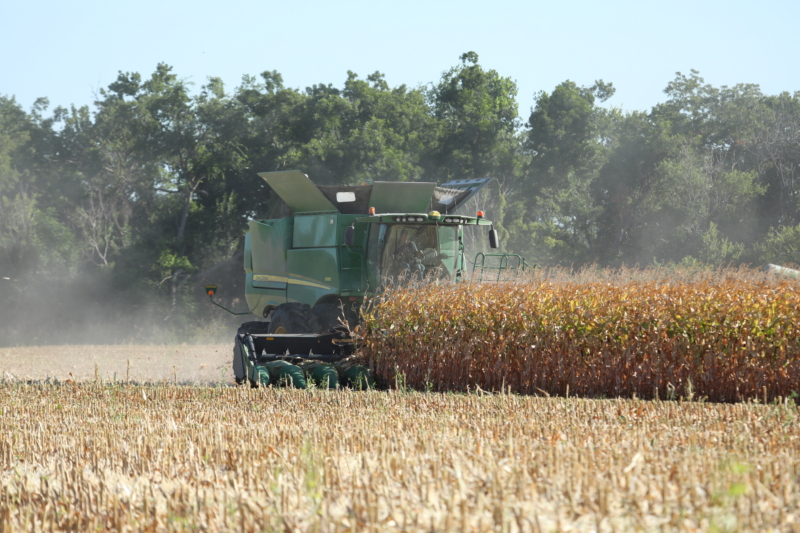By Jessica Domel
Multimedia Reporter
A hearing on the Environmental Protection Agency’s (EPA) impact on American agriculture turned briefly into partisan commentary on lack of movement in the farm bill.
During the U.S. House Agriculture Committee hearing July 10, committee Ranking Member David Scott (D-GA) blamed Committee Chairman Glenn “GT” Thompson (R-PA) for a stalemate in the farm bill process.
“His stubborn refusal to engage on a bipartisan farm bill is irresponsible for the American people, especially our farmers who feed, fuel, clothe and house our nation,” Scott said. “Since our very divisive markup almost two months ago, there has been absolutely no progress on Chairman Thompson’s bipartisan bill. The delay hurts the American people, especially in rural communities where our farms are, and it injects uncertainty into our nation’s economies, both rural and urban.”
The House Ag Committee passed Thompson’s version of the farm bill in a 33-21 vote on May 23. Despite the ranking member’s claim the bill is partisan, the legislation passed out of committee in a bipartisan fashion with four democrats voting for it.
The food and farm legislation now awaits consideration on the full House floor.
After the committee’s vote, Politico reported that House Democrats anonymously revealed Scott may be replaced as a farm bill negotiator due to frustrations with his approach and lack of leadership at certain times during the process.
Thompson said that week the farm bill would likely need to wait until at least September for consideration on the full House floor as fiscal year 2025 appropriations bills are making their way to the chamber.
In the July 10 hearing, Scott said he’s spoken with House Speaker Mike Johnson (R-LA) about the farm bill and its lack of movement.
“Let’s not be cute about this. Food security is national security. Chairman Thompson knows this. He put it in the dang title, ‘The Farm, Food and National Security Act,’” Scott said. “Shouldn’t the Republicans be getting serious about this? Speaker Johnson will not bring the bill to the floor for a vote because it was not written as a serious bill. It was written to be used as a campaign slogan. Nothing more.”
The ranking member then pointed to quick progress in farm bill movement in previous years, saying it took just one week from committee farm bill markup to a full House vote in 2007.
“I do not want any more excuses. It’s time to fish or cut bait. America deserves our urgency. Farmers and businesses deserve action now,” Scott said. “Since the markup, Speaker Johnson has not indicated any intention of moving Chairman Thompson’s bill. The speaker’s last public comments said he still needs to review the bill. It’s been two months. What’s left to review?”
Scott accused House Republicans of either being happy with no farm bill movement or that they cannot bring themselves to “engage democrats to get the bipartisan support the farm bill will require to become law.”
In response to Scott’s speech, Thompson said, “There’s a lot I could say, but I’m not going to say anything. We’re going to move ahead with this hearing and stay grounded in reality.”
Later on in the hearing, Rep. Frank Lucas (R-OK), a former chair of the House Ag Committee, said that in his 30 years on the committee, many times the challenges have come from leadership of outside groups. He encouraged the committee to continue to pull together.
“The farm bill process has been always and will be a challenging process and the patience of the leadership of the committee sometimes is required to a degree that’s almost biblical in nature,” Lucas said.
On the Senate side, no official vote has been taken by the Senate Committee on Agriculture, Nutrition and Forestry.
Senator Debbie Stabenow (D-MI), chairwoman of the Senate Committee on Agriculture, Nutrition and Forestry, released her framework for the bill May 1.
Senator John Boozman (R-AR), Ranking Member of the Committee, released his framework June 11.
Neither side had released a text of the farm bill as of July 11.
The current one-year extension of the farm bill expires at the end of September.


Leave A Comment